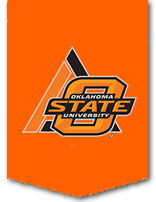FAPC workshop focuses on Continuous Improvement Tools
STILLWATER, Okla. – The Food & Agricultural Products Center hosted a workshop for beginners focused on food and agricultural processing applications to learn about continuous improvement tools.
The workshop was held Oct. 28 at the FAPC and covered several topics that ranged from basic quality, data classification and problem solving.
“Continuous improvement tools are used to maximize companies’ competitive advantage,” said Tim Bowser, FAPC food engineer and chair of the workshop. “These tools help individuals and teams work smarter to identify the root cause of problems and solve them.”
FAPC Director Roy J. Escoubas addressed the participants at the beginning of the workshop and stressed how important continuous improvement tools are to the food and agricultural industries.
“If we don’t use continuous improvement tools, our business is not going to be what it needs to be,” Escoubas said. “Continuous improvement tools are a quiet, driving force used in industry because of competition.”
Jason Young, FAPC quality management specialist, also spoke to the participants about the importance of quality.
“Quality is perceived by individuals; it is in the eye of the beholder,” Young said. “Customers expect a product to match or exceed expectations, such as the product supplied on time and a price the customer can afford.”
Young said incorporating continuous improvement tools in a business improves quality, as well as limits variation and decreases costs.
After discussing the necessity of quality, Bowser and Young described several continuous improvement tools participants could use in their businesses to increase the quality of their products. The tools included flow charts, cause and effect diagrams, data collection, pareto analysis, run charts, correlation charts, histograms and control charts.
Kenneth Case, regents professor of industrial engineering and management and featured luncheon speaker, encouraged the participants to incorporate the continuous improvement tools taught during the workshop, such as charts and diagrams.
"Using charts turns data into information that becomes pretty useful," Case said. "Data alone is worthless."
Bowser and Young organized participants into teams for hands-on training. Each team received a problem with actual data from a case-study situation.
"This activity described a real-world problem, and the participants had to brainstorm and use the tools they learned from the workshop to solve the problem," Bowser said.
Each team presented the results of their analysis and recommendations to solve the problem and fielded questions at the conclusion of the workshop.
For more information on continuous improvement tools or the FAPC, contact Bowser or Young at (405) 744-6071 or visit www.fapc.biz.
- ### -
Oklahoma State University, U.S. Department of Agriculture, State and Local Governments Cooperating. The Oklahoma Cooperative Extension Service offers its programs to all eligible persons regardless of race, color, national origin, religion, sex, age, disability, or status as a veteran, and is an equal opportunity employer.

